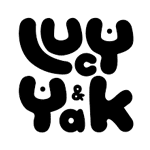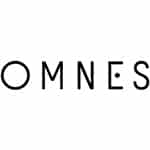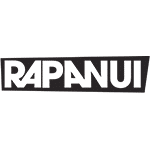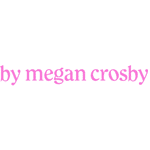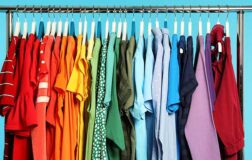13 best sustainable fashion brands
Fast fashion causes immense harm to the planet but, thankfully, it's far from your only option. Read on for a list of the best sustainable clothes brands that offer slower, and kinder, fashion.
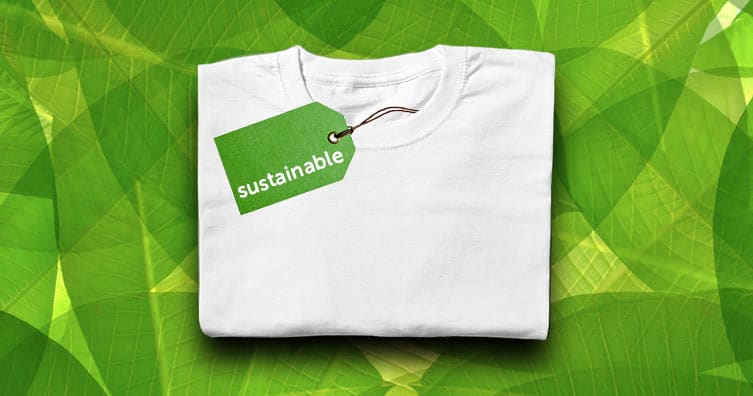
Credit: suksom, Mint Mockups, art-TAyga – Shutterstock
Whether you're new to the world of sustainable fashion or you've been looking for ethical clothing brands for a while, it can be pretty challenging at times to find the right store for you.
When 'greenwashing' occurs (when a company gives the impression that they're more eco-friendly than they are) it makes it even more difficult to identify which brands really are making a big effort to protect the environment.
But, to help you navigate through the confusion, we've picked out 13 sustainable fashion brands that are working hard to be eco-friendly alternatives to fast fashion stores.
What is sustainable fashion?
Sustainable fashion is focused on minimising the environmental harm of the manufacturing, distribution and disposal of clothes.
As well as making an effort to protect the planet, many sustainable fashion brands also ensure that all workers are treated and paid fairly, and that animals aren't harmed in the process of making the clothes.
In fact, sustainable fashion brands often go beyond simply reducing their harm to the planet, people and animals, and try to have an actively positive impact on the world around them.
Top sustainable clothing brands
Here are the 13 best sustainable fashion brands:
-
Lucy & Yak
Best for: Fun everyday fashion.
Known for bold prints and ethical manufacturing, Lucy & Yak is a great brand for affordable, sustainable fashion. The company started out making dungarees and has since expanded into a wide range of clothing choices. These include jeans, jackets, dresses, accessories and more.
Among their sustainability goals, they're committed to using organic and reused materials as much as possible. At the time of writing, they say on their website that 98% of their fabrics are organic or recycled.
To avoid excessive waste, they set out to create long-lasting clothes and recirculate their used or imperfect items. For example, you can find low-cost items in their Depop store that have slight faults or have previously been worn, but are still in good enough condition to be bought.
Lucy & Yak even has a buyback scheme to keep Yaks in circulation for longer. Just return any Lucy & Yak item of clothing, no matter the condition, to one of their stores, and you'll receive a voucher to spend online or in-store.
Even the brand new clothes on their main site are priced competitively compared to a lot of high-street stores. This is especially the case in their online sale, where you'll see last-chance-to-buy items with big reductions in price. In the sale, we've previously seen a pair of shorts reduced from £40 to £16!
You can also sign up for their student discount to get 10% off your orders.
-
TALA
Best for: Flattering gym wear.
The sustainable activewear and athleisure brand, TALA, was founded by Grace Beverley in 2019 while she was still a student at the University of Oxford.
Since launching, they've rejected fast fashion practices and instead championed sustainability.
TALA creates high-performance gym wear for women out of recycled, upcycled and natural fabrics. They also encourage customers to use a fibre filter bag when washing clothes to trap microfibers.
TALA's courier bags and product packaging are all made of 100% recyclable plastic. And even their tags are created with sustainability in mind. They're filled with seasonal seeds that you can plant at home.
As well as sustainability and quality, another key focus of TALA is competitive pricing.
Their clothes may seem a bit more pricey than some fast fashion brands (at the time of writing, around £25 – £40 for a gym shirt and around £40 – £60 for gym leggings), but they're created to last as long as possible and represent a slow fashion option. This means you aim to only buy what you need, when you need, and look after the clothes you own as much as you can.
And if you're hoping to follow in Grace Beverley's entrepreneurial footsteps, check out these small business ideas to start at university.
-
OMNES
Best for: Affordable clothing.
OMNES was created to prove that fashion can be good quality, affordable and responsible at the same time.
You may be thinking that some of the brands we've mentioned here all sound great but seem a bit pricey compared to what you would usually spend. Well OMNES may be the answer you're looking for.
All OMNES pieces are designed in their London studio. With shorts and tops available from £10, they are definitely one of the more affordable options when it comes to sustainable clothing. On top of that, they also offer a 10% student discount with Student Beans.
OMNES is committed to ensuring they don't impact the environment or the people they work with in any negative way. They have partnered with Earthly to measure the carbon impact of their operations and offset it, and are recognised as a Climate Positive certified business. You can read more about their sustainability journey on the website.
I have tried and tested a skirt from OMNES. Here's my review:

My OMNES skirt is one of the most worn (and loved) items of clothing I own. It's a maxi skirt made from recycled polyester, and is so soft and comfy.
The brand's sustainability was the first thing that stood out to me. And, when I saw their designs, I was immediately a fan.
I wanted a skirt that I could dress up or down to get as much wear out of it as possible, and the one I bought has been ideal for this.
Overall, I've been thrilled with the purchase and would definitely buy OMNES clothes again.
-
Rapanui
Best for: Wardrobe staples made with a circular supply chain.
Rapanui sells clothes made from natural materials, using a factory that's powered by renewable energy.
A big selling point of the brand is that they have a circular supply chain. This means all of their clothes are designed to be sent back when they're worn out, and Rapanui then uses the old items to make new products.
It's free to send clothes back for remanufacturing and, as an added bonus, they'll give you a coupon for money off your next purchase.
In the factory, rather than making big batches and hoping the clothes will all get sold, they start making products quickly after they're ordered to avoid waste. However, this shouldn't affect delivery times.
To give you an idea of prices, at the time of writing, it costs around £15 for a basic tee from Rapanui or £20 for a printed t-shirt in both its men's and women's ranges.
-
Plant Faced Clothing
Best for: Cruelty-free streetwear.
If you're hoping to find ethical, cruelty-free streetwear that's kind to the planet, Plant Faced Clothing is definitely worth looking into.
Over 75% of their range is made with eco-friendly fabrics such as recycled water bottles and organic cotton.
You might notice a few brands on this list use organic cotton. It's an eco-friendly alternative to standard cotton as it uses less water and no artificial fertilisers or pesticides are used to produce it.
On top of this, Plant Faced Clothing uses vegan, water-based inks to print their clothes to avoid the toxic ingredients in plastisol inks (which are often used in fashion). When they package their clothing, they use boxes that are made from 100% recycled paper and, again, use water-based inks for printing.
Rapanui prices vary, but to give you a general idea of the cost, you can expect to pay around £50 – £70 for a hoodie (men's and women's). And, if you visit their shop via the link below, you can get 10% off at the checkout.
-
WUKA
Best for: Sustainable period pants.
In the UK alone, more than 200,000 tonnes of disposable tampons and pads are sent to a landfill every year. And let's not get started on the pads and tampons that are flushed down the toilet…
Luckily, WUKA offers an alternative. The name stands for Wake Up Kick Ass and they proudly believe your period shouldn't hold you back. Their leak-proof period pants allow you to stay comfortable during your time of the month.
Sustainability and menstrual health are the core of WUKA's brand. Their products are vegan friendly, have no added chemicals and come in plastic-free packaging. They also donate money to City To Sea's Rethink Periods Project.
WUKA's period pants are made from responsibly sourced sustainable materials and start at around £12. Even though you will need to buy a few of them to last you throughout your period (if you want to cut out tampons and pads altogether), the pants last up to two years.
Use the code SS15 for 15% off.
-
Batoko
Best for: Swimwear made from recycled plastic.
"We're rubbish. Literally." This statement on Batoko's website isn't exactly what you'd expect from a sustainable swimwear brand. But they really do mean it.
They focus on keeping plastic waste out of landfills and oceans by making swimwear from recycled plastic. They've so far recycled the equivalent weight of over 300,000 plastic bottles into swimming costumes.
This alone is great, but they go further with their sustainability efforts by getting involved in important projects to help the sea life.
For example, in 2019, they adopted a nursery table with Coral Gardeners which looks after 100 broken corals – once healthy enough, the corals will be replanted onto the reefs. More recently, they have collaborated with the Cornish Seal Sanctuary to help rescue and rehabilitate the seal pups here.
At the time of writing, their swimsuits cost £60 each, which is a bit more on the pricey side. However, it's worth looking for the ones that are part of collaborations with other environmental projects. For example, for every one of their lobster swimsuits sold, a baby lobster is reared and released into the sea through the National Lobster Hatchery in Cornwall.
If a Batoko swimming costume is within your budget and you're on the lookout for a new one, it could be a great choice.
Here's my review of Batoko:

I bought Batoko's lobster-print swimsuit over two years ago and absolutely love it.
It's not only sustainable, but also comfortable to wear, practical to swim in and it has a very cute design. I couldn't be happier with it!
-
VEJA
Best for: Vegan-friendly sneakers.
VEJA is a great choice for sustainable shoes. On their website, they're transparent about their environmental impact and carbon footprint. They explain in detail what they're doing to be as eco-friendly as possible.
Over the last couple of years, they've reduced their use of leather, developing a vegan range of sneakers.
They use a few materials that are eco-friendly alternatives to leather, including B-mesh, which is made from recycled plastic bottles. The material is both sustainable and practical as it's breathable and waterproof.
VEJA really are doing a lot to push forward the design and manufacturing of sustainable shoes. Check out their website to find out more.
In terms of price, VEJA's shoes are quite expensive (generally around £100 or more). But, have a look at the outlet store. You might find some more affordable trainers there.
-
KOHR
Best for: Gender-neutral basics.
All KOHR's collections are designed and manufactured in-house in the UK.
The brand's mission is to create a credible alternative to high-street fashion whilst using sustainable and ethical practices. Their gender-neutral basics are designed to last, using trends that last up to 10 years.
They use a mixture of sustainable materials, all their packaging is made from biodegradable, recycled and recyclable material, and for every order you make, one tree is planted. Just check out the KOHR website to see all the measures they're taking to be climate positive.
KOHR's collection prices are still considerably higher than your average high street store, but check out the sale section of the site. We've found gender-neutral linen shorts reduced from £85 to £35, and organic cotton tops down from £50 to £20.
If you're worried about buying a new outfit that you'll rarely wear, you could try rental clothes. -
Thought
Best for: Clothes and socks made with natural materials.
Thought says on their website, "We're working towards lasting change in the fashion industry. You can look great and look after the planet at the same time."
They're a slow fashion brand. Some of the ways they're working to be as eco-friendly as they can include using natural and sustainable materials and creating pieces that are designed to last, both in terms of style and quality.
Thought has a whole section on their site dedicated to socks which come in lovely designs and are made from natural fabrics like bamboo and organic cotton. At the time of writing, it costs around £8 for a pair of socks. Or, you could also get four pairs in a gift box for around £28 (which is a great eco-friendly gift idea).
-
Patagonia
Best for: Outdoor clothing.
Looking for sustainable outdoor clothing? Try Patagonia.
Their clothing isn't cheap, with coats sometimes costing £300+. But like with a lot of brands on this list, the clothes are designed to last so you shouldn't need to replace them for a few years.
They put a big emphasis on avoiding waste. So much so that they'll give you credit towards your next purchase if you trade in your old Patagonia item through their Worn Wear programme.
Patagonia also has a self-imposed 'Earth tax', pledging 1% of sales to the preservation and restoration of the environment.
On top of this, they're working towards a goal of being carbon neutral by 2025.
To find out more about these and other environmental initiatives by Patagonia, head over to their website.
Some brands in this list offer the option to buy now, pay later (BNPL). To reduce your fashion consumption, it's best to avoid BNPL as it can lead you to spend and buy more, potentially without realising it. Get more info in our full Klarna review. -
By Megan Crosby
Best for: Vibrant made-to-order clothing.
If you're keen to avoid a large-scale fashion business, you could consider ordering clothes from By Megan Crosby.
They usually create made-to-order clothes in fun and vibrant designs. At the time of writing, though, it says on their website that their made-to-order clothes will be back ASAP. If you sign up for their mailing list, you should hopefully hear when the clothes become available again.
The clothes are quite expensive (you can expect to pay £70+ for a top), but they're designed to last so you should be able to get your money's worth out of them.
By Megan Crosby pledges to only use sustainable, deadstock, remnant and organic fabrics. All of the packaging they use is recyclable, reusable or biodegradable and they work hard to keep waste down.
-
adidas
Best for: Branded sportswear.
As we'll explain in more detail shortly, mainstream clothing and footwear brands generally have a long way to go to be more sustainable. However, adidas (while not perfect) is making noticeable efforts to become more sustainable and produce more eco-friendly products.
They state that by 2025, nine out of 10 of their articles will be sustainable, meaning they'll be made with materials considered to a significant degree to be environmentally preferred materials.
Currently, in their Primeblue collection, you can buy items made with high-performance yarn that's made with 50% Parley Ocean Plastic.
Items within the collection vary in price depending on the type of product. As a couple of examples, we've previously seen a pair of shorts that cost £25, while Primeblue shoes usually cost £100+ (there are some cheaper ones available too).
And, by 2025, adidas aims to achieve carbon neutrality for their corporate and own-retail sites.
Are high-street fashion brands sustainable?
While a lot of high-street fashion brands still have a long way to go in terms of sustainability, some have introduced initiatives to be more eco-friendly. Here are a few examples of how fashion retailers are trying to improve their environmental impact:
- H&M's Garment Collecting programme – Through this scheme, you can take any old clothes or textiles (not just H&M ones) to one of their stores and they'll give you a voucher in return. They'll then either market the clothes as second-hand, turn the clothes/textiles into another product (e.g. cleaning cloths) or shred and recycle them.
- M&S's cotton commitment – M&S only uses cotton that is sustainably sourced. They partner with the Better Cotton Initiative (BCI) to help farmers be more efficient with water, respect biodiversity and look after soil health.
- ASOS's Circular Design Collection – All the items in ASOS's Circular Design Collection are made from safe and recycled or renewable materials, are made to be used more and made to be made again. You can find more details of the collection on the ASOS website.
For loads of practical tips on how to live more sustainably, check out our guide on how to reduce your carbon footprint.

